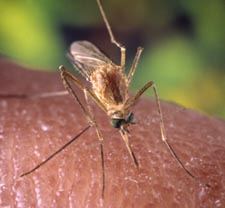UGA Odum School of Ecology Prof. To Handle WNV Case
 West Nile virus has been widely studied after it affected New York City for the first time in 1999. But, there is still little known about how the ecosystem of mosquito-borne sicknesses differs between urban and rustic domains.
West Nile virus has been widely studied after it affected New York City for the first time in 1999. But, there is still little known about how the ecosystem of mosquito-borne sicknesses differs between urban and rustic domains.
John Drake, Assistant professor at the University of Georgia Odum School of Ecology expects to throw light on these differences with a recently honored $578,619 grant from the National Science Foundation.
Mr. Drake has joined with the New York Department of Health and Mental Hygiene in order to gain information on the occurrence of infected mozzies, birds and humans. This statistics will be utilized to build up computer models to analyze differences between West Nile virus in urban against rural surroundings.
Other objectives of the three-year analysis are to provide suggestions for bettering New York City’s existing mosquito control plans, and to offer ecologically-based risk maps and graduated metrics for early signs of disease epidemic. Drake stated that this would be the beginning of a long-standing analysis.
Drake said, “I believe that mosquito population dynamics, which are notoriously complicated, are the key to this study. Human infection with West Nile virus comes through contact with mosquitoes which get the infection from birds, not humans. And so, there is also an important wildlife-mosquito interaction.”
Since 1999, West Nile virus has resulted in about 1,000 deaths in America. And in the last week, the first 2007 death from Georgia has been reported, again indicating the need for further research on this topic. This grave public health worry has also shaped a unique chance due to the quantity of data available.
“Here, for the first time, we have a remarkably complete dataset with which to study the interplay of urbanization and wildlife on the transmission of mosquito-borne disease,” said Drake. “This is a problem that is increasing in importance as urbanization continues to accelerate worldwide.”
By making use of seven years of epidemic information, Drake and his group will check a number of theories about vector-borne illnesses in the built surroundings.
“In America, we have eliminated malaria and we don’t have a serious problem with dengue fever,” said Drake. “Vector-borne diseases were thought to be a minor issue for the developed world. West Nile virus’ emergence has changed that.”